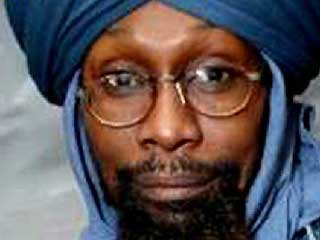|
|
|
Luqman Ameen Abdullah. Photo from the Council on American-Islamic Relations and Fox News. |
In October, a shootout at a warehouse in Dearborn, Mich., claimed the life of Luqman Abdullah, the imam of Detroit’s Masjid al-Haqq, and in the process garnered national attention. Abdullah had been a Detroit representative to al-Ummah, which a criminal complaint filed by an FBI special agent describes as “a nationwide radical fundamentalist Sunni group consisting primarily of African-Americans.” (Others, including the Muslim Alliance in North America, strongly deny this characterization.)
The next issue of CTR Vantage, a publication of the Center for Terrorism Research at the Foundation for Defense of Democracies, will focus on the shooting incident and the movement that Abdullah represented. Today we provide an advance look at the upcoming issue by publishing an article I co-wrote with Madeleine Gruen that will be the next issue’s lead piece. An excerpt:
Al-Ummah-which is either a splinter from, or a cover for, the Darul Islam movement-had been led by Jamil al-Amin, who was formerly known as 1960s firebrand H. Rap Brown. Though al-Amin is reportedly still considered al-Ummah’s leader by the group’s members, he has not been involved in day-to-day operations for some time: he is currently serving a life sentence at the Supermax prison in Florence, Colorado, following his 2002 conviction for shooting two police officers in Georgia.
In May 2009 in Alabama, Luqman Abdullah claimed while under surveillance that al-Amin had created al-Ummah out of fear of government interference. Two years before Abdullah became part of the movement, several Darul members were killed in a shooting in New York. “Jamil Al-Amin said they had to divide the group because having too many people in one organization made them an easy target,” the criminal complaint against Abdullah recounts. “According to Abdullah, the group is still Dar-Ul, but this is not widely known because of the United States government. The Ummah is a cover name for Dar-Ul.”
Multiple sources estimate that al-Ummah under al-Amin had “approximately thirty branches in America and the Caribbean.” Muslim journalist Steven Barboza stated that al-Amin’s “followers are said to number around 10,000 Muslims.”
Detroit’s Masjid Al-Haqq, which had been located at 4118 Joy Road, was an al-Ummah mosque. It was not only used for prayer services but also for weapons and combat training. Abdullah also lived on the premises with his family. In January 2009, Abdullah and his followers were evicted from the mosque for nonpayment of property taxes. Authorities recovered firearms, knives and martial arts weapons from Abdullah’s apartment in the mosque, and observed “empty shell casings on the basement floor, and large holes in the concrete wall of the ‘shooting range.'” Although the mosque was located in an urban environment, it was surrounded by empty lots on all sides, and was thus relatively secluded.
To read the full article, click here.
Are you a dedicated reader of FDD's Long War Journal? Has our research benefitted you or your team over the years? Support our independent reporting and analysis today by considering a one-time or monthly donation. Thanks for reading! You can make a tax-deductible donation here.








